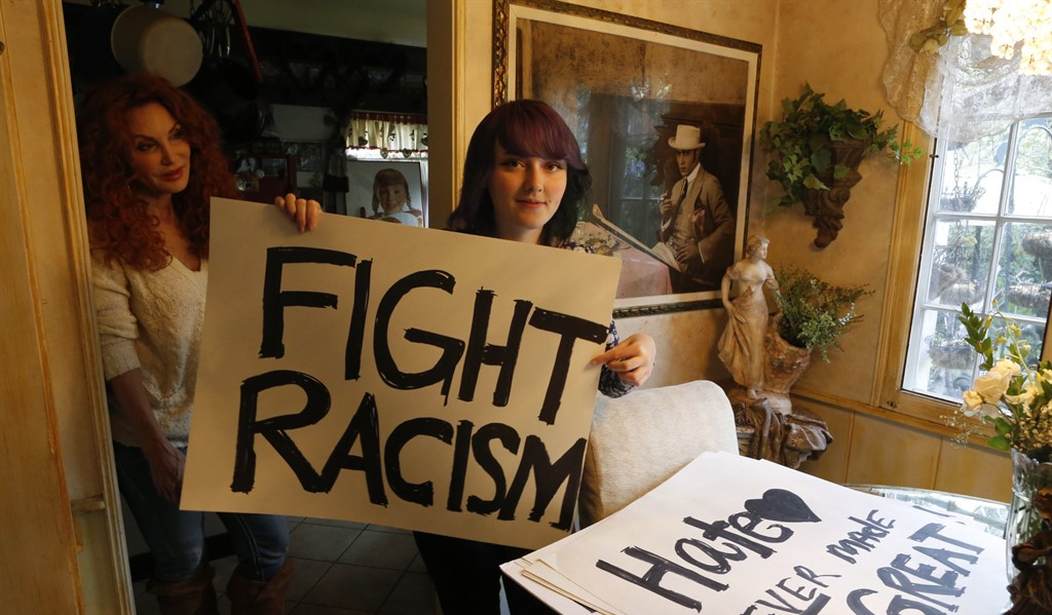We are at a critical juncture in American history.
This past July, a Rasmussen poll indicated that, “For the first time in his presidency, a majority of Americans believe race relations have gotten worse under President Obama.” That was five long months ago, and today, racial tensions are even higher in the aftermath of the Trump election.
On the one hand, white supremacists, who represent the tiniest, fringe minority of white Americans, have been thrust into the mainstream spotlight as they celebrate Trump’s victory as their own (despite being denounced by the Trump campaign). Not only so, but The Intercept noted that, “Trump’s election has led to an explosion in anti-black, anti-immigrant, and anti-Muslim, intimidation and violence. Swastika graffiti has been reported on billboards, and in parks, public transit, and schools all across the country.”
Even if some of this data is exaggerated or inaccurate – one must read reports by the SPLC, which is one of the sources referenced here, with great care – the celebratory mood of white supremacists cannot be denied.
On the other hand, radical black Americans, also representing a tiny, fringe minority of their people, have fueled their own fires of racial hatred, calling for extreme anti-white measures, including things like urging black jurors “to scare whites by automatically acquitting African-Americans accused of murdering or raping whites, no matter what the facts.” (This proposal was put forward by Elie Mystal, a Harvard law school graduate and an editor of Above the Law.)
Not surprisingly, in today’s racially charged environment, when UC Irvine organized a forum with LAPD Chief Charlie Beck, “who was planning to speak on how we can solve problems of police brutality and racial tensions,” the Black Student Union, along with Black Lives Matter, organized a protest.
Recommended
The two groups “were seen holding signs to ‘kill police officers ‘and ‘Blue Lives Don’t Matter’ along with F*** The Police.
“Protesters were chanting, ‘Rise up, resist, put those killer cops in jail, the whole damn system is guilty as hell!’”
Similar examples of racial hatred, both anti-black and anti-white, can easily be multiplied, along with expressions of racial hatred towards other groups (be they Hispanics or cops), and there are no signs of these tensions abating.
Adding further fuel to the fire, President Obama has stated that he “absolutely” experienced racism during his presidency, while an article on Slate claims it was not “just anger over jobs and immigration” that got Trump elected. Instead, we are told, “White voters hope Trump will restore the racial hierarchy upended by Barack Obama.”
Yes, everything is racial these days, to the point that one article made the claim that the reason Beyoncé didn’t receive a Grammy nomination for her recent country song was because the Grammy’s are racist.
What other explanation could there be? As one tweeter expressed it, “@blackvoices country enough?! Pfft nope she was snubbed because she's Black let's be real!!”
This is reminiscent of the joke about a Jewish stutterer who was rejected for a job as a radio announcer because, as he complained to a friend, “It’s because they don’t like Jews.” But of course!
Unfortunately, there are professional race-baiters who thrive on divisive, identity politics and who are more successful the more they provoke hostilities. And people of faith are not immune to their tactics.
Looking at all this through the eyes of a white American, I see groups like Black Lives Matter stirring up anger, hatred, and acrimony, exploiting things like the “Hands up! Don’t shoot!” myth to deepen national tensions.
In response, white Americans who are put off by the dangerous rhetoric of extreme Black Lives Matter groups, become further blinded to the legitimate grievances of many black Americans, including a substantial number of law-abiding blacks who are deeply frustrated by our nation’s justice system.
And so the cycle continues unless we make a determined effort to break it – and break it we must.
I suggest that:
1) We refuse to give the race-baiters the time of day. They may provoke others, but they won’t provoke us.
2) We refuse to be driven by our emotions. It’s fine to be passionate – in fact, we should be passionate about justice and truth and equity – but it’s dangerous to put emotions before rational thinking. Let’s put facts before feelings.
3) We determine to talk to each other, not past each other. After many years of interaction with Americans (and internationals) of every stripe, I have found that people who respect each other amid their differences have a much better chance of understanding each other. A little humility never hurt. Your view (or mine) is not the only view that counts.
4) We recognize our need for one another (yes, that’s right, I said “need”). To the extent America is divided, America will not be great. As Abraham Lincoln reminded our nation many years ago (quoting the words of Jesus, “A house divided against itself cannot stand.” In truth, divided we really do fall; united we really do stand.
Let’s work together, then, to address genuine areas of racial and social concern while refusing to give one inch of ground to those who seek to divide us. They will lose their power if we keep them on the fringe.

























Join the conversation as a VIP Member